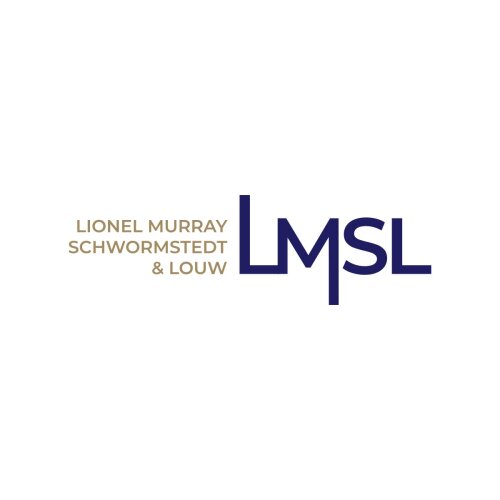Best Information Technology Lawyers in Cape Town
Share your needs with us, get contacted by law firms.
Free. Takes 2 min.
List of the best lawyers in Cape Town, South Africa
About Information Technology Law in Cape Town, South Africa:
Information Technology Law in Cape Town, South Africa governs the use of technology, including computers, software, and the internet, in various aspects of society. It encompasses a wide range of legal issues such as data protection, cybersecurity, intellectual property rights, electronic commerce, and privacy.
Why You May Need a Lawyer:
You may need a lawyer in the field of Information Technology in Cape Town, South Africa if you are facing issues such as data breaches, intellectual property disputes, contract negotiations, regulatory compliance, or any other legal matters related to technology and digital information.
Local Laws Overview:
Some key aspects of local laws in Cape Town, South Africa that are relevant to Information Technology include the Protection of Personal Information Act (POPIA), the Electronic Communications and Transactions Act, and the Copyright Act. These laws regulate how personal data is collected and processed, govern electronic transactions, and protect intellectual property rights, respectively.
Frequently Asked Questions:
1. What is POPIA?
POPIA stands for the Protection of Personal Information Act, which aims to protect the privacy of individuals by regulating how personal information is handled by organizations.
2. What is cybersecurity?
Cybersecurity refers to the practice of protecting computer systems, networks, and data from cyber threats such as hacking, phishing, and malware.
3. Can I use someone else's copyrighted work without permission?
No, using someone else's copyrighted work without permission is a violation of their intellectual property rights and can result in legal consequences.
4. What is electronic commerce?
Electronic commerce is the buying and selling of goods and services over the internet or other electronic systems.
5. What are the penalties for non-compliance with POPIA?
Non-compliance with POPIA can result in fines or imprisonment, depending on the severity of the violation.
6. What should I do if my company experiences a data breach?
If your company experiences a data breach, you should notify the Information Regulator and take steps to mitigate the impact of the breach.
7. How can I protect my intellectual property rights?
You can protect your intellectual property rights by registering your trademarks, patents, and copyrights, and by using confidentiality agreements and non-disclosure agreements.
8. What are the legal requirements for electronic contracts?
Electronic contracts must meet the same legal requirements as traditional contracts, such as offer, acceptance, consideration, and intention to create legal relations.
9. Can I transfer personal data outside of South Africa?
You can transfer personal data outside of South Africa, but you must ensure that the receiving country provides an adequate level of data protection.
10. Do I need consent to collect personal information?
Yes, you generally need consent to collect personal information, except in certain circumstances outlined in POPIA.
Additional Resources:
For more information on Information Technology law in Cape Town, South Africa, you can visit the Information Regulator's website or contact the Cape Town Bar Association for a referral to a qualified lawyer specializing in IT law.
Next Steps:
If you require legal assistance in the field of Information Technology in Cape Town, South Africa, you should schedule a consultation with a lawyer who has experience in this area. They can provide you with advice tailored to your specific situation and help you navigate the complex legal landscape of IT law.
Lawzana helps you find the best lawyers and law firms in Cape Town through a curated and pre-screened list of qualified legal professionals. Our platform offers rankings and detailed profiles of attorneys and law firms, allowing you to compare based on practice areas, including Information Technology, experience, and client feedback.
Each profile includes a description of the firm's areas of practice, client reviews, team members and partners, year of establishment, spoken languages, office locations, contact information, social media presence, and any published articles or resources. Most firms on our platform speak English and are experienced in both local and international legal matters.
Get a quote from top-rated law firms in Cape Town, South Africa — quickly, securely, and without unnecessary hassle.
Disclaimer:
The information provided on this page is for general informational purposes only and does not constitute legal advice. While we strive to ensure the accuracy and relevance of the content, legal information may change over time, and interpretations of the law can vary. You should always consult with a qualified legal professional for advice specific to your situation.
We disclaim all liability for actions taken or not taken based on the content of this page. If you believe any information is incorrect or outdated, please contact us, and we will review and update it where appropriate.









